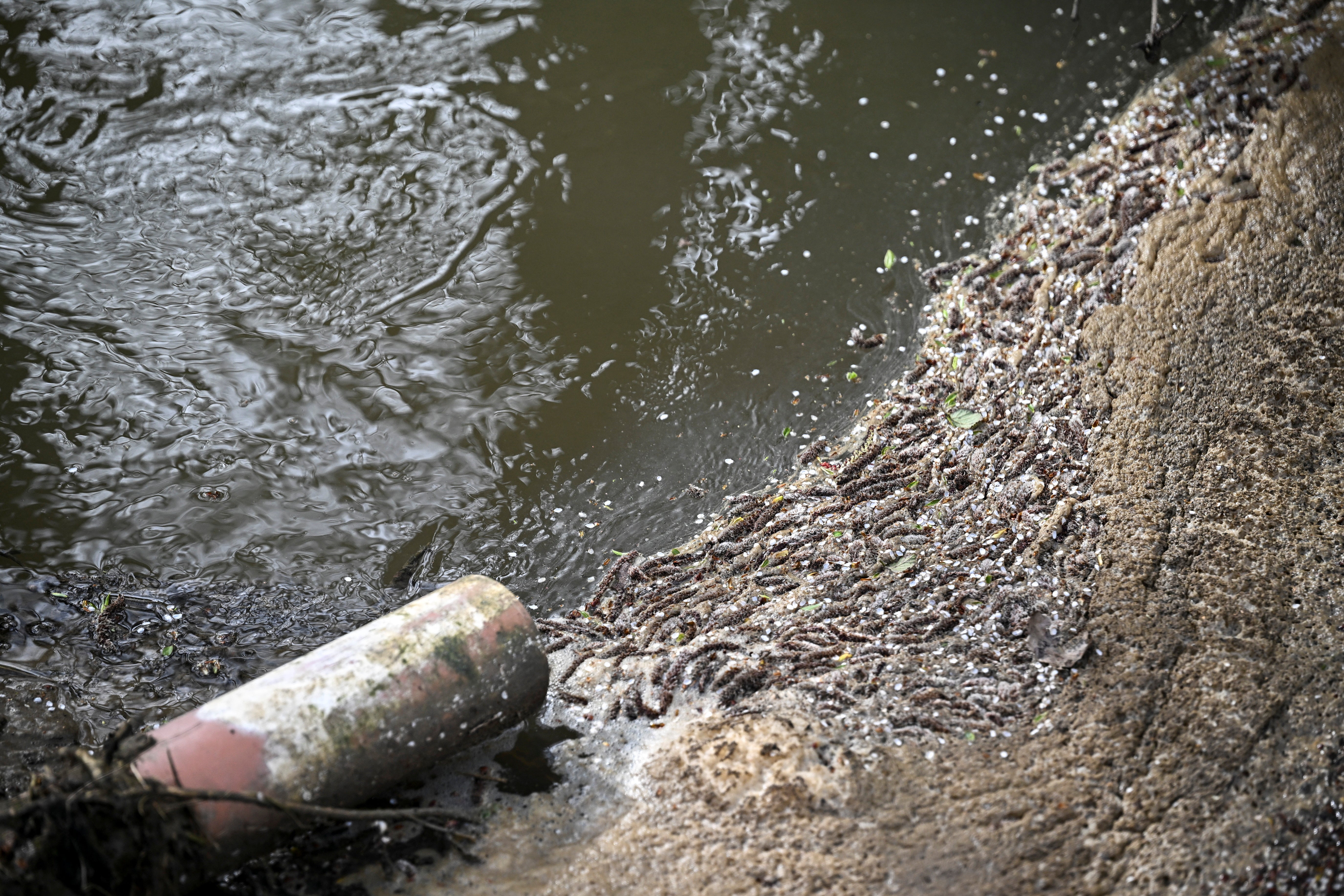Sewage pumped into river in picturesque Chilterns village for five consecutive days
Exclusive: Sewage discharged into brook feeding Ouzel river on the edge of Chiltern Area of Outstanding Natural Beauty

Your support helps us to tell the story
From reproductive rights to climate change to Big Tech, The Independent is on the ground when the story is developing. Whether it's investigating the financials of Elon Musk's pro-Trump PAC or producing our latest documentary, 'The A Word', which shines a light on the American women fighting for reproductive rights, we know how important it is to parse out the facts from the messaging.
At such a critical moment in US history, we need reporters on the ground. Your donation allows us to keep sending journalists to speak to both sides of the story.
The Independent is trusted by Americans across the entire political spectrum. And unlike many other quality news outlets, we choose not to lock Americans out of our reporting and analysis with paywalls. We believe quality journalism should be available to everyone, paid for by those who can afford it.
Your support makes all the difference.Sewage has been pumped into a brook running through a picturesque village on the edge of the Chiltern Hills for nearly a week, The Independent can reveal.
A water recycling centre near Ivinghoe, Buckinghamshire, has been discharging waste into Coombe Bottom brook, which feeds into the Ouzel river, since the morning of 23 May.
Waste was still flowing into the waterway on Tuesday afternoon, Anglian Water, which operates the centre, confirmed after one of its engineers visited the site - but added this was due to heavy rain which takes several days to clear.
Campaigners claimed the “horrific” incident was yet another example of the “daily illegal sewage spills that take place across the country”.
Water companies have come under increasing scrutiny in recent years after it emerged that many have been discharging sewage into the country’s rivers and coastal waters.
Across the UK, rain and sewage share the same pipes in a combined system, meaning that sewage treatment works can sometimes become overwhelmed.
When this happens waste is spilled into waterways from ‘storm overflows’ to prevent the system from blocking up, potentially causing problems in homes and other properties.
Storm overflows are only supposed to be activated during extreme weather but for years they have been used routinely, with some water companies discharging sewage even on days when it has not rained.
Human waste, wet wipes and sanitary products can be contained within the overflows, posing a risk to wildlife and swimmers.
The Environment Agency published figures in March showing that sewage spills into England’s rivers and seas by water companies more than doubled last year.
There were 3.6 million hours of spills compared to 1.75 million hours in 2022, according to the data.
Anglian Water’s recent sewage spills near Ivinghoe - on the edge of the Chilterns Area of Outstanding Natural Beauty - came despite the company building a new storm tank to “protect local rivers” last year.
The new storm tank was designed to capture an additional 380,000 litres of stormwater “during extreme weather and flooding” so it could be treated before being returned to the nearby water courses.
The water firm was fined £2.65m last year after allowing untreated sewage to flow into the North Sea, although the fine was reduced to £300,000 on appeal.
The company said it was upgrading existing equipment to reduce the levels of phosphorus in the water that is returned to the environment.
Anglian Water said the move would strengthen the current water treatment process, “reduce algae growth and improve water quality in local watercourses”.

The Invinghoe storm overflow was still active on Wednesday afternoon, meaning there have been more than 140 hours of spills into the brook.
Charles Watson, chairman and founder of River Action UK, said: “This horrific ongoing pollution incident on the Coombe Bottom brook is sadly just another example of the daily occurrence of illegal sewage spills that take place across the country.
“Only resolute action from OFWAT and the Environment Agency to ensure that the prioritising fixing these dilapidated failing sewage assets takes place over the payment of dividends to shareholders will end this national embarrassment of systemic sewage pollution.
“It simply defies belief that an area of outstanding natural beauty such as the Chiltern Hills can continue to be desecrated in this disgusting manner.”
Last year Ofwat set out new measures so that companies face penalties if they do not fully monitor their storm overflows.
All companies were to be given targets for reducing the average number of spills from storm overflows, and where they did not meet those targets, they would be subject to financial penalties.
Dani Jordan, director of campaigns and communities at Surfers Against Sewage, said: “Unfortunately, we’re not surprised at the ongoing environmental vandalism blighting our rivers.
“But we are disgusted. It’s a result of devastating underinvestment that is systemic across our water industry.
“Water companies dump sewage come rain or shine, all the while siphoning off tens of billions to shareholders and paying the fat cats at the top huge pay and bonuses.
“It’s great to see investment pledged, but customers shouldn’t be lumped with the bill as a result of water companies’ greedy financial mismanagement.”
Anglian Water said the storm overflow at Ivinghoe had been activated following heavy rain and that it takes several days for water to filter from the environment through its network.
It added that the introduction of the new storm tank would not eradicate storm spills entirely.
A spokesperson said: “We’ve heard loud and clear from our customers, communities, passionate river groups and our regulators that we need to take action to address storm overflows.
“We agree that storm overflows are no longer the right solution when sewers become overloaded with rainwater.
“If approved by Ofwat, our business plan from 2025 proposes almost £1bn into directly tackling storm spills – our largest investment ever.”
*This article was amended on 31 May 2024 to include the fact that the level of Anglican Water’s fine last year was reduced on appeal.
Join our commenting forum
Join thought-provoking conversations, follow other Independent readers and see their replies
Comments